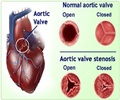A recent research showcases that people born with low birth weight can use supplemental co-enzyme Q (CoQ) which may reduce risk of heart diseases.

To make their discovery, Tarry-Adkins and colleagues fed pregnant rats either a control diet or a diet that had the same total calories but contained less protein and more carbohydrates. The mothers fed the low protein diet had pups which had a low birth weight but grew quickly when suckled by a control fed mother. Researchers examined the aorta from the rats which were born small and grew very quickly after birth and showed that their cells aged more quickly than those from the normal birth weight offspring and that this was associated with a deficit in co-enzyme Q, in both the aorta and in the blood compared to the normal birth weight rats. Administering extra coenzyme Q in their diet from weaning prevented the accelerated aging of and damage to their aortas.
"Coenzyme Q is in the drug store now, but if you think that what you buy is going to keep you from having a heart attack or stroke, don't get your hopes up just yet," said Gerald Weissmann, M.D., Editor-in-Chief of The FASEB Journal. "This promising research was conducted in rats, and if it also applies to people, still doesn't tell us how much to take, for how long, and if it's safe for these purposes. We've got a long way to go on this one, but so far, so good!"
Source-Eurekalert














